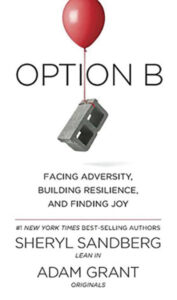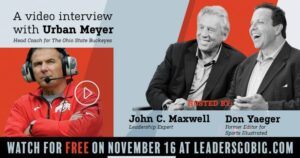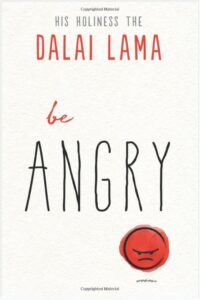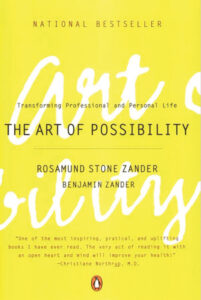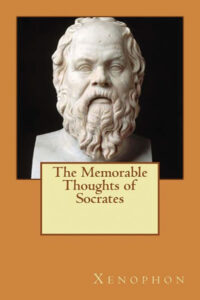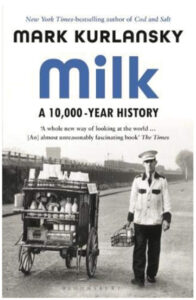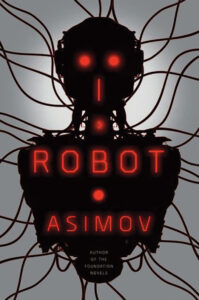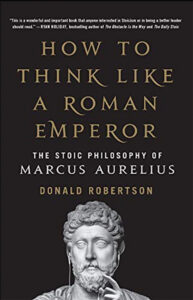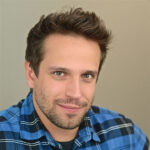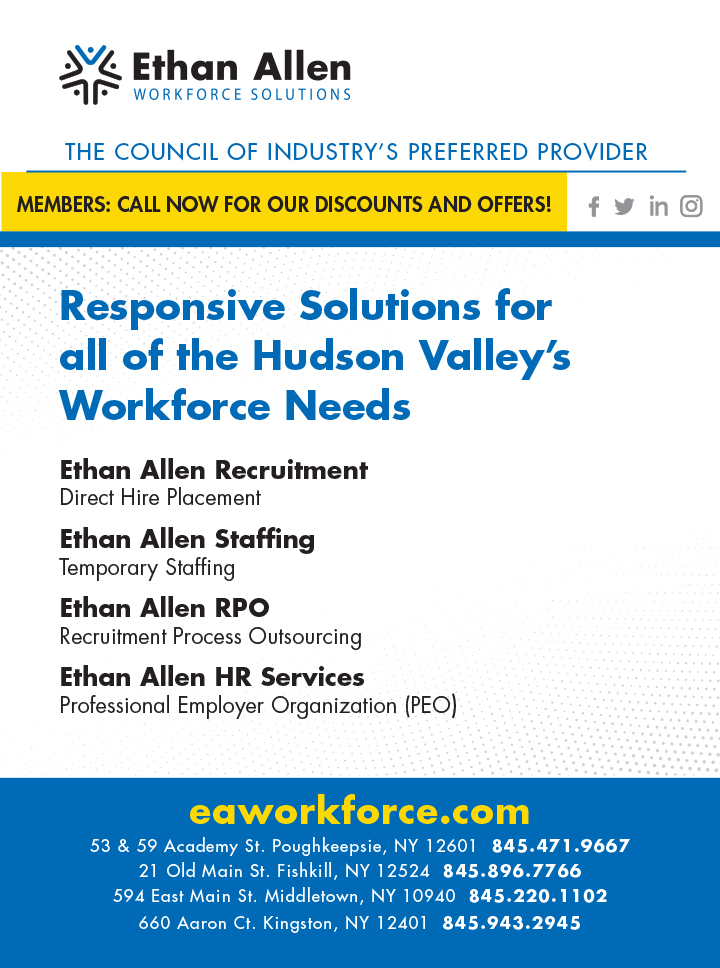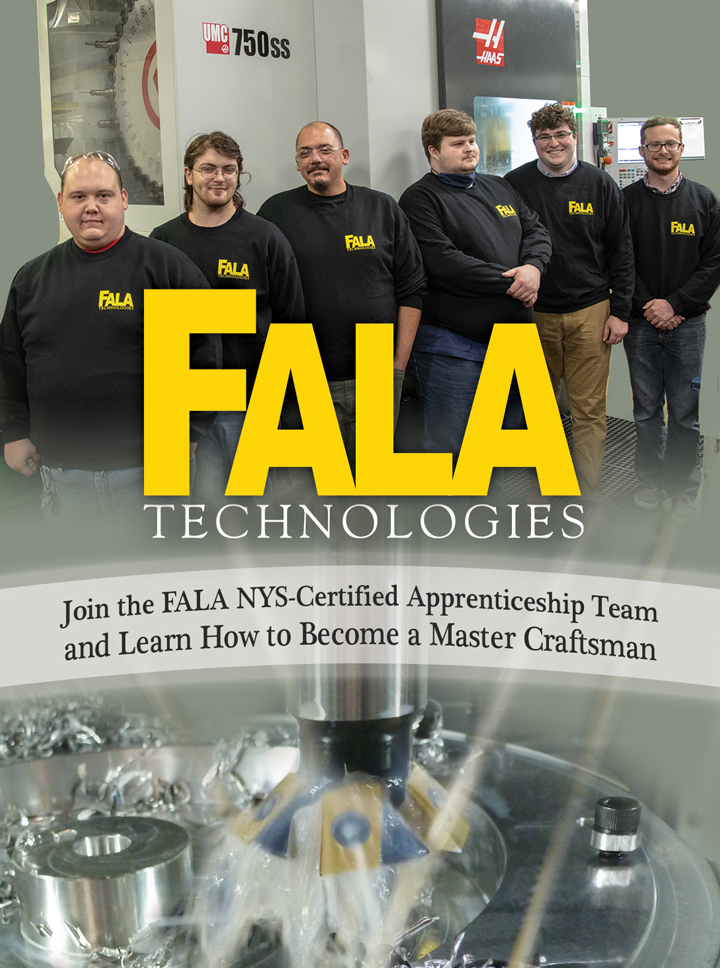PROFESSIONAL GROWTH AND DEVELOPMENT
WITH INDUSTRY LEADERS
WHAT ARE YOU READING?
HV Mfg asked Council members from the manufacturing community to recommend a book, article or podcast that impacted them personally or professionally.
Jennifer Clark – GlobalFoundries
The Title: Option B: Facing Adversity, Building Resilience, and Finding Joy
The Authors: Sheryl Sandberg and Adam Grant
A Brief Summary: Life happens – and hardships are a part of it.
Option B provides a personal account from Sheryl Sandberg following the sudden death of her husband as she figured out what came next for her family. Sandberg partnered with researcher Adam Grant to establish practical tips to build resilience for herself and her children. Building on personal examples from Sandberg and others, this book creates a framework around how to get back up following a crisis. It provides hope that when Option A is no longer available, you can keep going – and thrive – with Option B.
In What Ways Did You Find It Valuable or Impactful: Option B provides timely insight on how to deal with the collective changes that are ongoing during the COVID-19 pandemic. One of the most difficult challenges for me has been how to support my daughter through the loss of her school routine and the accompanying social isolation from friends. The advice in the book on ways to build resilience in children was helpful and practical. It helped me re-frame this time as an opportunity to help my daughter grow confidence that she can handle difficult things. The power of this book is in helping you realize you have the choice of how you navigate life, especially in response to adversity. Given everything in the world we can’t control, reading Option B gave me reasons to be optimistic and appreciative of the joy that life has – even in 2020.
Luke Stoddard – LeChase Construction
The Title: Leadership GO BIG Podcast Series
The Authors: John Maxwell and Don Yaeger
A Brief Summary: John Maxwell (Leadership Expert) & Don Yaeger (Former Associate Editor, Sports Illustrated) did a Leadership podcast series called GO BIG where they interviewed Sports Icons & Leaders in the Sports World. This specific Podcast was an interview with Arthur Blank (Owner of the Atlantic Falcons and co-founder of Home Depot). In the interview Arthur Blank explains the 6 Key Guiding Principles that are the Culture & Foundation for all of his companies.
In What Ways Did You Find It Valuable or Impactful: The 6 Key Principles are:
- Put People First,
- Listen and Respond,
- Include Everyone,
- Innovate Continuously,
- Lead by Example,
- Give Back.
When I first heard these principles, it was like an Aha moment, they just made sense to me. Then I began to ask myself am I doing these? Which ones do I struggle with? As a Leader in the Construction Industry, it is easy to get caught up in focusing on making a profit because that’s what keeps the doors open and the business going. However, Arthur Blanks’ thought process is this: “If you drive the right behavior you will get the right financial results.”
Wow, what a different way of thinking. This really opened my eyes to the importance of doing just that “Driving towards the right behavior,” first in myself and then in others. Since hearing this Podcast I have made a commitment to apply these principles in everything I do, and to also coach/ mentor others on these as well. It’s still a struggle and I am not perfect, but I believe that if more of us apply these 6 Principles in our daily lives, the better this world will be.
Julian Stauffer – PTI
The Title: Be Angry
The Author: The Dalai Lama
A Brief Summary: The Dalai Lama has a lot to say about love, compassion, and avoiding anger, but he also realizes that anger is an important emotional state of being human. Suppressing anger or never showing anger begins to eat away at ourselves from the inside out. In today’s world, there is much to be angry about. This is a very short and simple read on how to use compassionate anger for social transformation in true Dalai Lama style.
In What Ways Did You Find It Valuable or Impactful: The book has helped me access emotions that are generally seen as unacceptable by society. Anger is an important human emotion that can be destructive in the long run if you are not in touch with it. It is OK to be angry. As an introverted person, I have had difficulty with expressing emotions, especially ones that are negative. There is a part of me that is now allowed to be angry. The Dalai Lama has given me a pathway to use anger in a compassionate way.
Kelly Lyndgaard – Unshattered
The Title: The Art of Possibility
The Author: Rosamund and Benjamin Zander
A Brief Summary: Twelve breakthrough practices for bringing creativity into all human endeavors, The Art of Possibility is the dynamic product of an extraordinary partnership. The Art of Possibility combines Benjamin Zander’s experience as conductor of the Boston Philharmonic and his talent as a teacher and communicator with psychotherapist Rosamund Stone Zander’s genius for designing innovative paradigms for personal and professional fulfillment. The authors’ harmoniously interwoven perspectives provide a deep sense of the powerful role that the notion of possibility can play in every aspect of life. Through uplifting stories, parables, and personal anecdotes, the Zanders invite us to become passionate communicators, leaders, and performers whose lives radiate possibility into the world.
In What Ways Did You Find It Valuable or Impactful: This is my favorite leadership book. It helps you see the best in everyone, call out their strengths, and breathe possibility into their future. I love this book for any leader on my team as it reframes the way we see ourselves as leaders and the team which we lead. The Art of Possibility balances the gift we can give others as seeing them as their best selves, and the necessity of holding people accountable for their effort. A true glimpse into what it takes to build a well “orchestrated” team from the conductor of the Boston Philharmonic Orchestra.
John Yelle – Pratt & Whitney Advanced Coating Technologies
The Title: Socrates Discovers Generic Management
The Author: Xenophon
A Brief Summary: Socrates is best known for establishing that “the unexamined life is not worth living.” But he also found time to argue for the universality of management, that a successful business leader could be an equally effective general. The underlying doctrine of universal or generic management holds that a properly trained manager will be effective in any type of organization, whether public or private, whether in service or manufacturing. Socrates Discovers Generic Management is a dialogue Socrates has with Nicomachides, a decorated captain and centurion for the Athenian army who was passed over for a position as a general in favor of a well-known merchant. In short, Socrates discusses the notion that being the best soldier does not automatically make one the best for a high-level leadership position, as the ability to manage diverse needs and limited resources may indeed by best placed in the hand of a person skilled in such things.
In What Ways Did You Find It Valuable or Impactful: I love this lesson and I like to remind myself of it and the lesson it presents. I also share it with management classes I teach. It demonstrates that even thousands of years ago they understood that leadership of an organization requires more than just expertise in day-to-day tasks.
Ben Katzenstein – Star Kay White
The Title: Milk, A 10,000-Year History
The Author: Mark Kurlansky
A Brief Summary: While mother’s milk may be the essence of nourishment, it is the milk of other mammals that humans have cultivated ever since the domestication of animals, more than 10,000 years ago. Today, milk is a test case in the most pressing issues in food politics, from industrial farming and animal rights to GMO’s, the locavore movement and advocates for raw milk, who controversially reject pasteurisation. Profoundly intertwined with human civilization, milk has a compelling and a surprisingly global story to tell.
In What Ways Did You Find It Valuable or Impactful: Kurlansky is a superb food historian. I’ve read his other books on Cod, Salt, The Big Oyster, The Last Fishing Tale, Paper, and Birdseye. All were excellent. Being in the food business I find all his histories extremely enlightening. Milk is no exception and it helps me put what we do at Star Kay White in its proper context.
Frank Falatyn – Fala Technologies
The Title: I Robot
The Author: Isaac Asimov
A Brief Summary: In my senior year at Kingston High School my chemistry teacher took our entire advanced regents class to Sullivan Community College to attend a day long symposium on science and technology, at which the key note speaker was Isaac Asimov. At the time I did not know what a “symposium” was let alone who Isaac Asimov was. I still, to this day remember Asimov’s talk about the coming interplay of technology and, in particular robotics, with the future of mankind. (This was before computers were invented). In the Q&A session someone asked what he foresaw as the future for government – communism or capitalism. The year was 1975, which was the height of the cold war with TV shows and movies about the coming nuclear winter. I remember his oneword answer… “Neither.” He said a future type of government will arise which we cannot now even imagine. His words cement my ongoing thoughts about becoming an engineer and inventing the unknown future. I went to the school library the next day and checked out my first Isaac Asimov book, I Robot.
In What Ways Did You Find It Valuable or Impactful: I became an engineer and my best days are still spent at work helping our customers design, develop and build their next generation of equipment and technologies.
Harold King – Council of Industry
The Title: How to Think Like A Roman Emperor
The Author: Donald Robertson
A Brief Summary: How to Think Like A Roman Emperor is an introduction to one of history’s greatest figures, Marcus Aurelius. Marcus was known as the “philosopher emperor” who kept a daily journal of his thoughts and actions known as his “Meditations.” He is a prominent figure in the philosophy of Stoicism. The author, a psychotherapist, shows how thinking about the example Marcus set can help people live with integrity. He further shows a connection between stoicism and modern cognitive behavior therapy and how “thinking like a roman Emperor” can help us respond with resilience to adversity and anxiety and all of life’s challenges.
In What Ways Did You Find It Valuable or Impactful: I greatly enjoyed this book for the connection it makes between the “ancient” and the “modern.” We hear a lot about stress and anxiety in our world – particularly among young people. Whether brought about by technology or society or the pandemic there is little doubt that people are stressed and anxious. When we learn that 1900 years ago the Roman Emperor wrote to himself “You have power over your mind – not outside events. Realize this, and you will find strength,” and “Accept the things to which fate binds you and love the people with whom fate brings you together, and do so with all your heart,” we become reassured that things that cause anxiety in us today are not unique and that people have been dealing with them, to one degree or another, for centuries. While I read this book prior to the pandemic I have found its lessons valuable in working through its challenges. The four virtues of stoicism are: Justice, Moderation, Courage and Wisdom. They are as meaningful – and as elusive – today as they were in the time of Marcus Aurelius.
Jon Hilowitz – Orange & Rockland Utilities
The Title: From Rags to Richer
The Author: The Economist Magazine
A Brief Summary: This short article, which appeared in the October 3rd, 2019 edition of The Economist, highlights Julian Richer, owner of the stereo company Richer Sounds. While small businesses are increasingly vulnerable in the retail market, faced with staunch competition from larger distributors who can capitalize on economies of scale and offer a robust e-commerce platform to sell goods and services at reduced prices, Richer’s company continues to thrive. Rebuffing the Friedman-esque view of maximizing profits by any means necessary, Richer found sustained success by virtue of a significantly different model – one which paid employees well above the competition, and which recently saw Richer transfer ownership to employees.
In What Ways Did You Find It Valuable or Impactful: Richer’s business model, which he expounded on further in a 2001 book entitled The Richer Way, provides a success story that we should all seek to emulate, one in which employees are wellcompensated, valued, productive and happy. While Richer’s model surely sacrificed shortterm profits, it’s hard to argue with a track record of more than 40 years of success and an annual sales of more than £200m. Richer achieved wealth and prosperity while simultaneously developing a loyal, reliable staff, and ensuring that a livable wage was paid to all.



